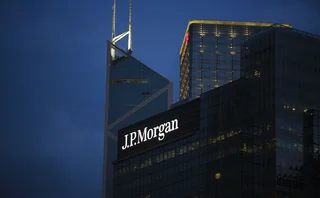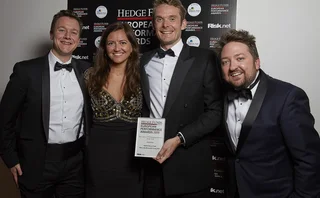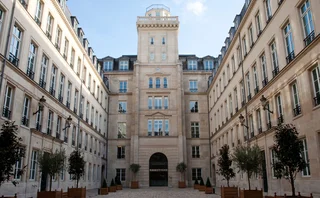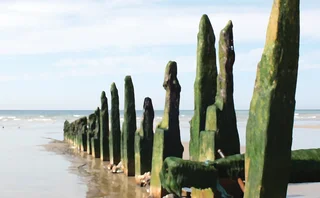
Madoff fallout
A growing number of lawsuits have emerged accusing fund management firms of investing client money with Bernard Madoff without conducting adequate due diligence. Do these accusations have merit? What are fund managers doing to improve their due diligence processes? By Christopher Whittall
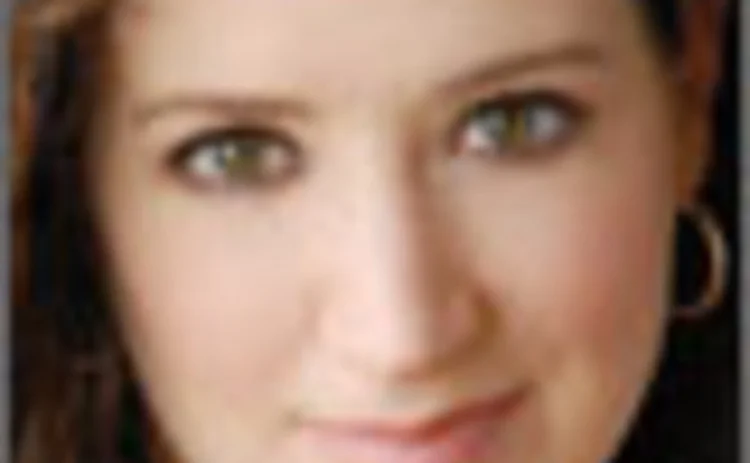
Bernard Madoff admitted a $65 billion investment scam on March 12, having pleaded guilty to 11 charges including securities fraud, money laundering and perjury. He is due to be sentenced on June 16 and faces up to 150 years in jail. But with little signs of any money being recovered from Madoff - indeed, the trustee of Bernard Madoff Investment Securities (BMIS) has revealed less than $1 billion in cash and securities had been located - investors hit by the Ponzi scheme are queuing up to take aim at other entities they claim are guilty of failures. Several class action lawsuits have already been filed against investment management firms that placed investor cash with Madoff - and more are likely to follow as further details on the fraud come to light.
Central to the lawsuits are claims investment managers and feeder funds failed to conduct appropriate due diligence on BMIS. Proceedings have already begun against New York-based Fairfield Greenwich Group, which runs a fund called Fairfield Sentry with a $6.9 billion exposure to Madoff. Suits have also been filed against New York-based Tremont Group, which has a total exposure of $3.3 billion, and Geneva-based Optimal Investment Services, an asset management subsidiary of Spain's Banco Santander, which has EUR2.33 billion in exposure - and that's just the tip of the iceberg (see table A).
All claim the investment managers failed to spot glaring warning signs that should have alerted them to wrongdoing at BMIS. "It was the failure to follow up on red flags. Moreover, the failure to provide adequate disclosure to customers is a breach of fiduciary duty and negligence," says Mark Raymond, managing partner at law firm Broad and Cassel in Miami, which is currently advising 15 clients with approximately $30 million invested in a fund run by Optimal.
All the funds analysed by Risk claimed they conducted scrupulous due diligence when selecting investment managers, with some highlighting this as a key strength. In a questionnaire conducted by the Alternative Investment Management Association (AIMA) on April 30 last year, completed by Optimal and distributed to its institutional clients, the firm stated its "thorough due diligence ensures the highest standards of quality are met when selecting hedge funds". Santander declined to describe Optimal's due diligence processes in more detail to Risk.
Tremont also highlighted its strong due diligence practices, noting in its offering memoranda that operational due diligence was conducted by an independent team, which included "an in-depth review of all of the manager's business".
However, investigations into Madoff's business empire have caused lawyers acting on behalf of investors to argue there were plenty of warning signs. Irving Picard, the court-appointed trustee responsible for liquidating BMIS, told a US bankruptcy court in Manhattan on January 16 that he had found "no evidence that securities were purchased for customer accounts" over the past 13 years.
Madoff apparently pursued a split-strike conversion strategy, which involves going long a basket of stocks with a high level of correlation to a certain index (in this case, the S&P 100), buying out-of-the-money puts on the index and selling out-of-the-money index calls. However, in a letter to the US Securities and Exchange Commission (SEC) in November 2005, fraud examiner Harry Markopolos warned the total S&P 100 index listed call options outstanding was not enough to generate income on Madoff's total assets under management (AUM). What is more, the firm's AUM would have to be more than 100% of the total S&P 100 put option open interest in order to hedge its stock holdings, he wrote. He also noted it was unlikely the over-the-counter index options market would have been large enough to absorb all the trades necessary given the size of the AUM.
Testifying before the US Congress House Committee on Financial Services in early February, Markopolos argued the non-existent trades could have been exposed simply by speaking to options traders to ask whether any of them had ever conducted a trade on behalf of Madoff.
Despite this, Fairfield Greenwich stated in offering memoranda that it would "review broker reconciliations to ensure completeness and existence of all securities". Tremont also declared "fund accounts are monitored in terms of securities holdings, asset mix and adherence to investment guidelines".
Lawyers state that if the funds had been doing the due diligence they claimed they were doing, they should have picked up on these anomalies. "The account statements show positions in various stocks he allegedly held, and the trades he was doing on a weekly basis were greater than the daily volume in stocks like Proctor & Gamble, Apple and Bank of America. That's more than a red flag - that's a bull snorting in your face," says Raymond of Broad and Cassel.
One of the biggest warning signs was arguably the sheer size and stability of the returns supposedly generated by BMIS. In his testimony to the House Committee on Financial Services, Markopolos claimed it only took him "five minutes to figure out it was a fraud" simply by looking at the purported returns, which he characterised as "a straight 45-degree performance line that never suffered losses". In his letter to the SEC in 2005, he pointed out the returns were too good to be true, and either had to be "the world's largest Ponzi scheme" or else Madoff was front-running clients.
Indeed, some investors tried - and failed - to replicate the strategy supposedly employed by Madoff. "We tried to replicate what Madoff was doing, but we soon realised it was nearly impossible for him to reach the 11% average return he managed," says Marc Enzler, chief executive of Zurich-based hedge fund due diligence firm SwissAnalytics (see figure 1). "The split-strike conversion strategy in itself is not revenue-generating - revenues have to come either from front-running or from taking out spreads and timing the S&P stocks. As Madoff said he was only long in these stocks, he would have to get in and out very fast, using a timing model. However, due to the sheer amount of assets he had to move, he wouldn't have been able to time ins and outs without making the market."
Again, this was apparently not spotted by the firms investing with Madoff. Lawyers point out the firms charged clients substantial fees, in part to conduct due diligence on behalf of individual investors. Indeed, one institutional investor who invested in Optimal says he specifically chose the firm because of its professed high levels of due diligence. "We're a small firm - we just didn't have the means to carry out the due diligence, so we used someone else to do it for us," says the chief executive of a Geneva-based fund management company.
According to court filings, Optimal collected EUR44 million in annual management fees, while Fairfield Greenwich would have collected fees of around $135 million for 2008. As a result, "people are entitled to rely on representation that something works", says Robert Finkel, partner at New York-based law firm Wolf Popper, which is bringing a class action lawsuit against Fairfield Greenwich in the Southern District Court of New York.
"Fairfield made false statements with regard to their prior diligence to induce people to make investments. It appears there were a number of incidents where they obtained access to Madoff and did some due diligence, which I consider cursory, with regard to how he traded. But they didn't do anything on a regular basis that would justify the amount of fees they were being paid," observes Finkel.
One lawyer involved in a class action lawsuit against Optimal, filed in the Southern District Court of Florida on January 30, says the firm either didn't conduct the level of due diligence it claimed or else did not take the warning signs seriously enough. "I can understand Santander not thinking it's a Ponzi scheme, but the notion that he wasn't doing something improper is very hard to believe. A lot of people thought he was front-running, and if that was the case Santander should have dug around and figured it out," he says.
Santander announced on January 27 that it would compensate private clients that had invested in the Optimal Strategic US Equity fund, which had placed money with Madoff. The bank will return the principal amount by allowing investors to exchange investments in the fund for preferred securities issued by Santander. The total amount will be EUR1.38 billion - but the compensation will not apply to institutional investors.
However, despite allegations of severe failings, the feeder funds claim they conducted due diligence to the best of their ability, noting BMIS was a broker-dealer authorised by the SEC and also authorised as an investment adviser by the US Financial Industry Regulation Authority (Finra), and so should have been subject to some level of inspection by regulators. As a result, the investment firms refute the allegations made in the various lawsuits.
"Tremont believes these claims are wholly without merit and will vigorously defend itself," says a spokesperson for Tremont. In a written statement, a Fairfield Greenwich spokesperson said: "Fairfield engaged in continuous ongoing monitoring of Madoff's activity."
"Everything we said about the due diligence we did is absolutely correct. When they say 'they didn't do any', it's just jumping to conclusions, and those kinds of allegations typically get dismissed on threshold motions," says an attorney defending one of the feeder funds. "It's very easy with the advantage of hindsight to say Madoff's fraud should have been readily apparent, but the reality is that it was a very carefully controlled and sophisticated fraud that fooled a number of people including the SEC and Finra, which had better access to information than we did."
Others agree it is difficult to say for sure that detailed due diligence by feeder funds would have exposed the fraud. "We know that something sizeable went wrong, but we don't know to what extent documents that were requested during the due diligence process might have actually been provided and were completely falsified," says Meredith Jones, managing director at New York-based due diligence software providers Pertrac Financial Advisers.
She points out due diligence is a complex process, combining qualitative and quantitative factors. "Putting together due diligence is like putting together a mosaic - until you put all the tiles in place, you don't know what the picture's going to look like. In this case, there were a lot of tiles that seemed to be problematic - one being that the return stream was as smooth as it was, others being the lack of transparency. But it's difficult to say there was one smoking gun," she says.
Nonetheless, the fraud was spotted by at least one person - Markopolos - while others struggled to understand and replicate the strategy. Some suggest the answer is simple - investors and regulators were suckered by his reputation and stellar returns. Madoff had a spell as a member of the board of governors of the National Association of Securities Dealers and chairman of the board of directors at Nasdaq, while his roughly 4,800 clients included Hollywood superstars.
"When hedge funds were hitting out of the park on a consistent basis, they had the momentum. So from the start, investors were blinded by his reputation. They thought there's so many people in there, it must be legitimate," says Jeff Rathgeber, founding partner of Hartford, Connecticut-based risk consultancy Pelorus Advisors.
Regardless of the outcome of the various lawsuits, observers believe it is almost inevitable new regulation will be introduced for hedge funds, particularly with regard to transparency and due diligence. A report into the financial crisis published on February 25 by the High Level Group on Financial Supervision in the European Union (EU), chaired by Jacques de Larosiere, former managing director of the International Monetary Fund and former governor of the Banque de France (known as the de Larosiere report), concluded that improvements need to made to European supervision and regulation.
The group said hedge funds did not play a major role in the emergence of the crisis, and pointed out the bulk of hedge fund managers in the EU are already registered and subject to information requirements. In the UK, all hedge fund managers need to be registered, and the 30 largest funds are also required to submit further information with the Financial Services Authority. Nonetheless, the de Larosiere report recommends all EU member states, along with the US, improve transparency by imposing registration and information requirements on hedge fund managers concerning their strategies, methods and leverage.
"The EC is reviewing the manner in which member states have implemented relevant legislation. If it turns out that there are gaps, the EC could envisage a number of options, ranging from legally binding clarification of the responsibilities, to more far-reaching legislative harmonisation," says a spokesperson for the EC.
The SEC attempted to enforce mandatory registration of hedge fund advisers in February 2006, but had to backtrack after the District Court of Columbia ruled the supervisor had no power to enforce registration. However, some now think a new attempt at regulating the sector is likely. The SEC declined to comment.
At the very least, the Madoff fraud will put a lot more focus on the quality of due diligence conducted by investment firms. Consultants say potential clients must, at a minimum, look closely at the track record of the manager, make on-site visits to assess culture and governance, examine how the fund is organised, watch for style drift, ask whether independent valuations and audit are conducted, query what exchanges are used for trading, check the quality of the disclosure, and ask for details of the portfolio, specifically with regards to concentrations.
"Redact anything you like: cross out all the investor names, hide all the portfolio holdings CUSIPs (security identification codes), do whatever you need to do to make that information sharable, but I need to see it," says Rathgeber.
See also:
Only users who have a paid subscription or are part of a corporate subscription are able to print or copy content.
To access these options, along with all other subscription benefits, please contact info@risk.net or view our subscription options here: http://subscriptions.risk.net/subscribe
You are currently unable to print this content. Please contact info@risk.net to find out more.
You are currently unable to copy this content. Please contact info@risk.net to find out more.
Copyright Infopro Digital Limited. All rights reserved.
You may share this content using our article tools. Printing this content is for the sole use of the Authorised User (named subscriber), as outlined in our terms and conditions - https://www.infopro-insight.com/terms-conditions/insight-subscriptions/
If you would like to purchase additional rights please email info@risk.net
Copyright Infopro Digital Limited. All rights reserved.
You may share this content using our article tools. Copying this content is for the sole use of the Authorised User (named subscriber), as outlined in our terms and conditions - https://www.infopro-insight.com/terms-conditions/insight-subscriptions/
If you would like to purchase additional rights please email info@risk.net
More on Hedge funds
JP Morgan warns hedge funds to expect intraday margin calls
US bank may demand variation margin ‘up to seven’ times a day after Archegos default
Alternative markets give edge to Florin Court strategy
By concentrating on exotic and alternative markets, Florin Court Capital Fund has sidestepped overcrowding and correlation to the main trend following commodity trading advisers, offering investors a diversified alternative to the standard systemic macro…
Global macro views combine with quantitative models to produce consistent returns
The team behind River and Mercantile Group’s global macro strategy team operates under two key principles: that macro is the most important aspect of any investment decision and that decision-making should incorporate both systematic and discretionary…
On the offensive – Seeking a new edge, buy-side invests in portfolio and risk analytics
A fast-moving, headstrong hedge fund – hit by rare losses after a black swan event touched on an overweight country exposure – ponders adding fresh quantitative expertise. Much to traders’ chagrin, the chief investment officer and chief operating officer…
Esma backtracks on account segregation
Status quo protected for rehypothecation of collateral in tri-party, securities lending and prime brokerage
Redemptions focused within strategies suffering losses in 2016
Redemptions focused within strategies suffering losses in 2016
Hedge fund redemptions a dismal end to a bad year
Managed futures funds saw big inflows in 2016, but left investors disappointed
Larger funds are net losers as outflows continue
Managed futures funds have seen biggest redemptions for three years
Most read
- Top 10 operational risks for 2024
- Top 10 op risks: third parties stoke cyber risk
- Japanese megabanks shun internal models as FRTB bites
